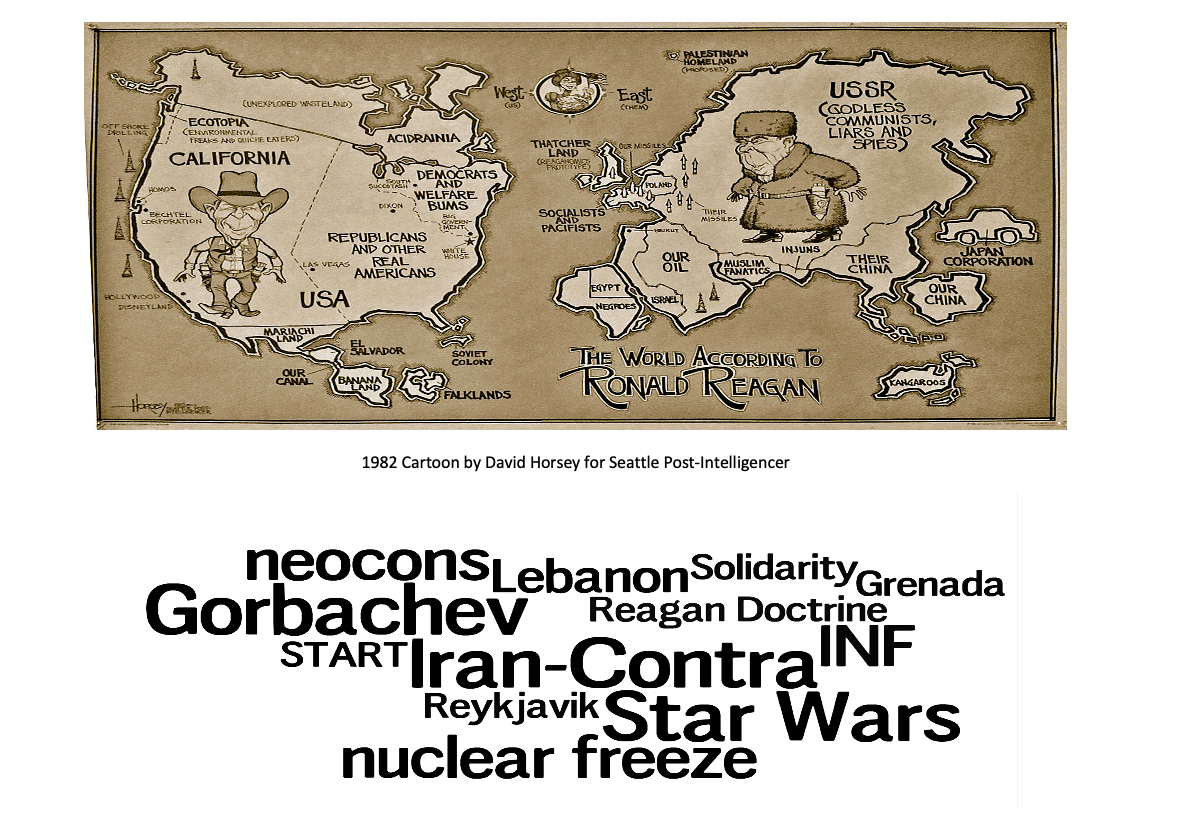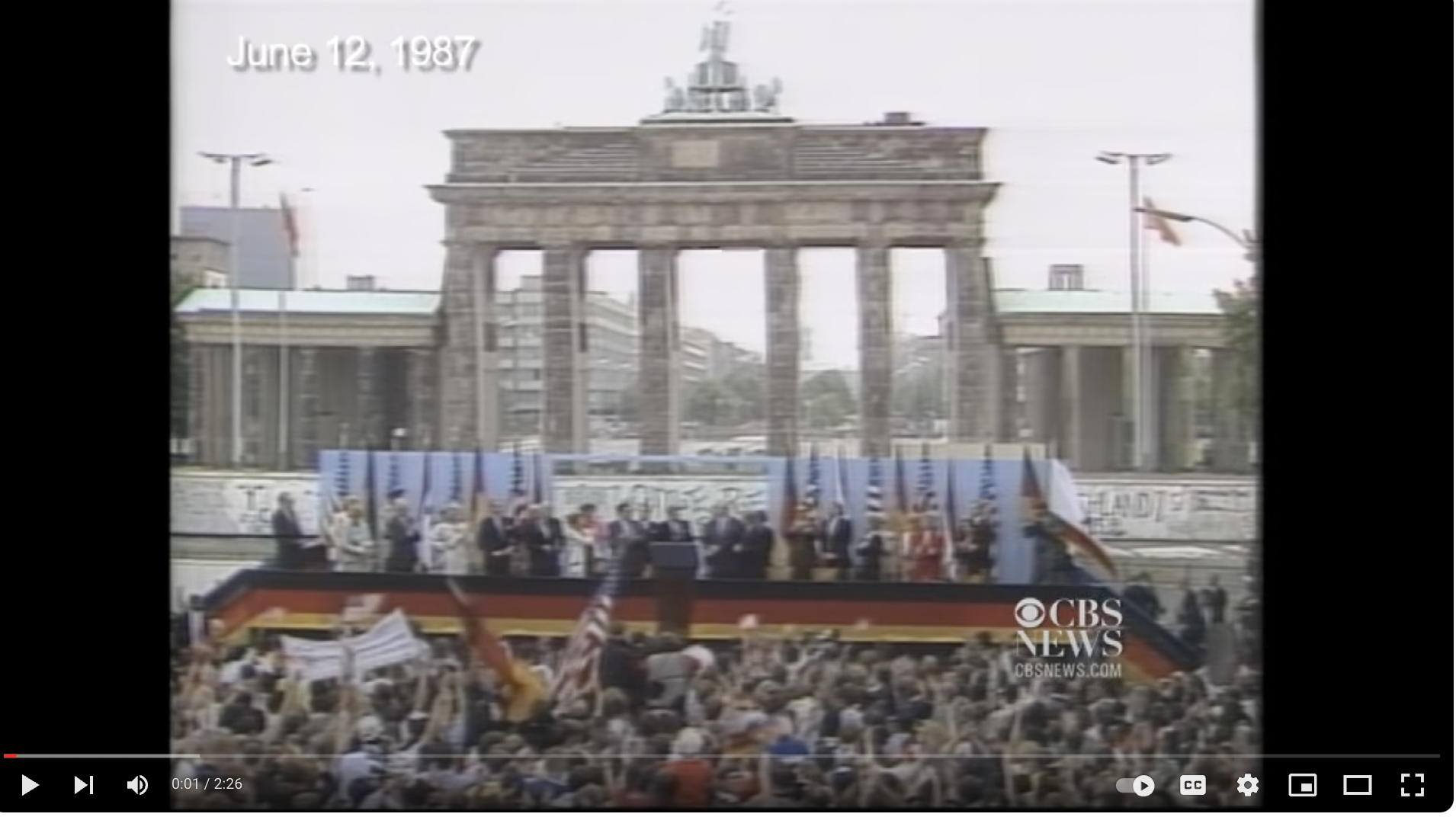Carter and the Cold War
Glossary
- Trilateral Commission (Brzezinski)
- Committee on Present Danger (Nitze)
Camp David Peace Accords (1978)
Iranian Hostage Crisis (1979)
Reagan and Cold War
March 1983: Star Wars
The Strategic Defense Initiative, which the President announced on March 23, 1983, shattered orthodoxies on all sides. By endorsing a program to defend the United States against long-range nuclear missile attacks, Reagan called into question the 1972 Soviet-American treaty banning strategic defenses, a fundamental pillar of the SALT I agreements. In doing so, he denied the basic premise of Mutual Assured Destruction, which was that vulnerability could produce safety. He thereby reversed an American position on arms control dating back to the Kennedy administration…. But he also linked SDI to the goal of lowering the nuclear danger: missile defense, he insisted, could in time make nuclear weapons ‘impotent and obsolete.’ —John Lewis Gaddis, p. 358
Speech by President Reagan, March 23, 1983
“After careful consultation with my advisers, including the Joint Chiefs of Staff, I believe there is a way. Let me share with you a vision of the future which offers hope. It is that we embark on a program to counter the awesome Soviet missile threat with measures that are defensive. Let us turn to the very strengths in technology that spawned our great industrial base and that have given us the quality of life we enjoy today.
What if free people could live secure in the knowledge that their security did not rest upon the threat of instant U.S. retaliation to deter a Soviet attack, that we could intercept and destroy strategic ballistic missiles before they reached our own soil or that of our allies?
I know this is a formidable, technical task, one that may not be accomplished before the end of this century. Yet, current technology has attained a level of sophistication where it’s reasonable for us to begin this effort. It will take years, probably decades of effort on many fronts. There will be failures and setbacks, just as there will be successes and breakthroughs. And as we proceed, we must remain constant in preserving the nuclear deterrent and maintaining a solid capability for flexible response. But isn’t it worth every investment necessary to free the world from the threat of nuclear war? We know it is.”
November 1983: Able Archer
- September episode involving Dimitri Petrov
- November episode involving NATO exercises




